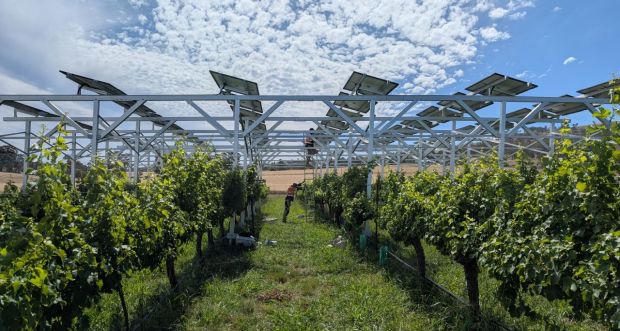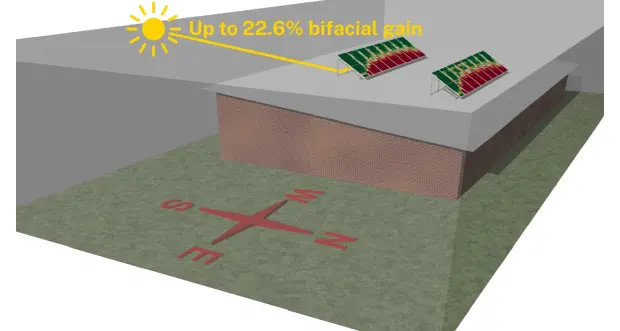Bifacial gain of rooftop solar PV
We accurately simulate the performance of bifacial solar panels on rooftop installations in our new study. We find that light roofs, which are common in Australia, could improve annual energy output by more than 20%.
Recent Publications
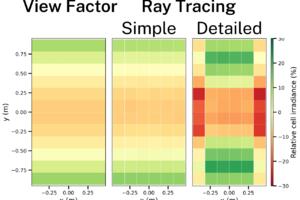
Comparison of view factor and ray tracing models
| Jun 03, 2024
Highlights • Comparative analysis of View Factor (VF) & Ray Tracing (RT) models for bifacial PV. • Both models perform similarly for front illumination, RT performs better for rear. • VF overestimates module rear irradiance by 6.7% due to frame & structure shading.
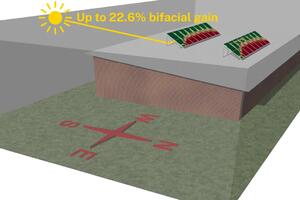
Bifacial gain of rooftop solar PV systems
| Dec 07, 2023
Highlights • Bifacial solar modules on rooftops offer up to 22.6% energy yield gains. • Rooftop reflectivity plays a crucial role in maximizing the bifacial potential. • Higher optimal tilt angles for bifacial modules, influenced by rooftop reflectivity. • Parallel intra-module interconnection supports achieving high bifacial yield gains. • Module-level optimizers enhance bifacial energy generation potential by up to 1.4%
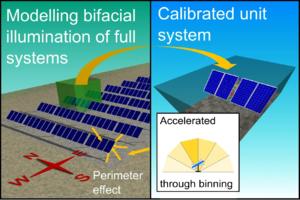
Accelerating ray tracing of real bifacial systems
| Dec 24, 2021
Bifacial photovoltaic solar panels convert light into electricity from both sides and are expected to dominate the market within a decade. Bifacial solar farm developers need accurate models of energy inputs, notably of rear illumination, to estimate annual energy yield and make accurate economic projections. Ray-tracing is the most suitable technique to simulate the complex optical interactions in single axis tracking bifacial PV farms but is computationally expensive. In this work, we accelerate Monte Carlo ray tracing of large solar systems by nearly 90% and validate our results with experimental data. We analyse the impact of the surrounding ground surface area and time-dependent ground reflection via calibrated unit systems. Overall, this work provides a basis for fast and accurate predictions of the annual energy input of real bifacial tracking PV systems. In turn this can lead to better system yield projections and contribute to lower risk for solar farm developers.
One-Minute Typical Meteorological Year Data for Australia - Corresponding data can be downloaded here for free.
My Projects

SunCalculator
Software

Multifunctional Dielectric Layers
Research
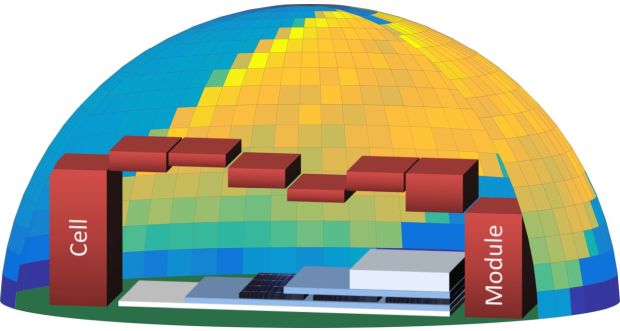
Cell-to-Module Yield CTMY
Research

One Minute TMY Data Australia
Software
